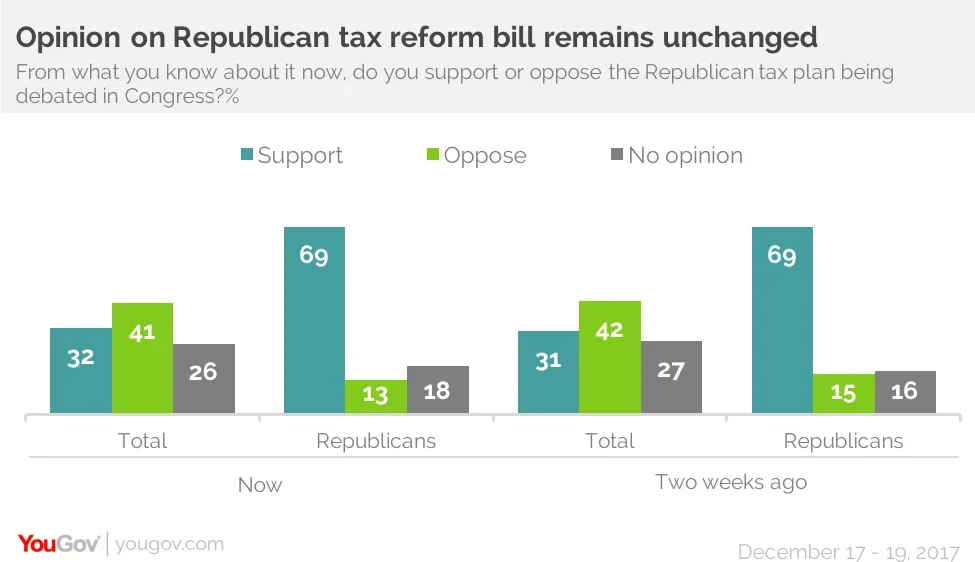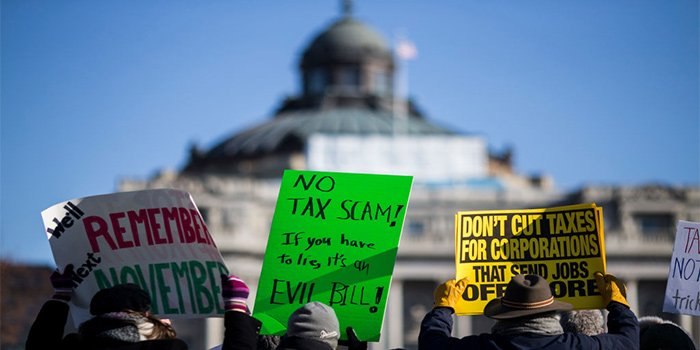Only 16% think their own taxes will drop, but 55% think the wealthy will get a tax break
The Republican victory on a major tax reform bill comes as Americans continue to doubt the legislation’s potentially positive impact on their own lives – and with little change in overall opinion about the bill itself. On the eve of its passage, just 32% of respondents in the latest Economist/YouGov Poll supported the tax bill.
There has been almost no change in opinion in the last two weeks, and while two in three Republicans support the legislation today, that figure also has changed little in the last two weeks.
One major test of the impact of the legislation will come on February 1, when Americans see its impact on their payroll withholding taxes, President Trump has said. At that point, salaried workers will see their tax withholding decrease – or increase. But right now, few expect they will pay less in taxes because of the bill. It continues to be perceived as a bill that benefits the wealthy (and the President) and not most of the country or respondents themselves.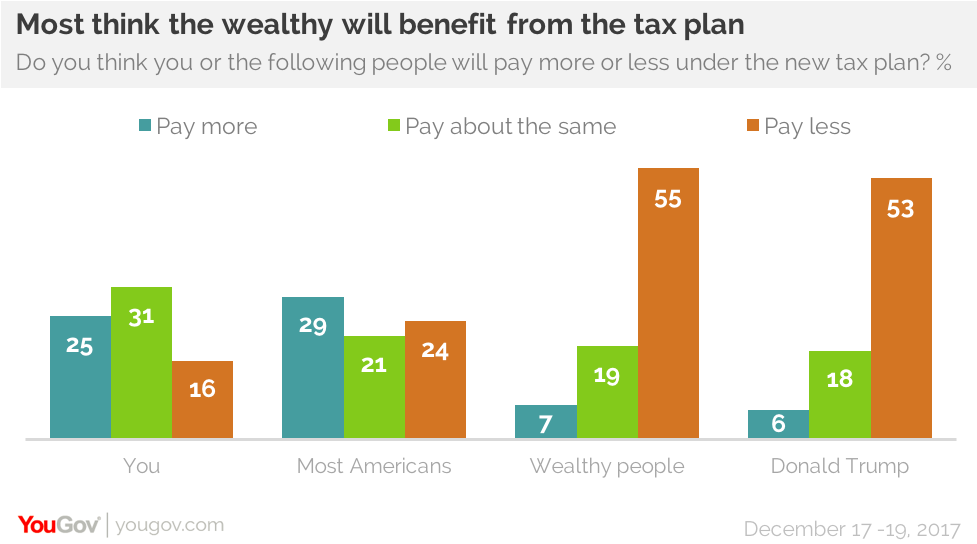
Only 16% believe their own tax bill will drop because of the bill, while one in four instead believe their personal taxes will increase. Even among respondents with family incomes above $100,000 per year, there is skepticism: just 24% of them expect they will pay less in taxes, although 55% of them think “most wealthy people” will get a tax break.
Even Republicans, while supportive of the legislation, are dubious about any personal benefits they will receive. Only one in three Republicans think their own taxes will drop due to the legislation, while 43% believe taxes on the “wealthy” will decline.
Republicans generally see benefits from the legislation: nearly half expect most Americans will in fact see a tax cut. And Republicans are less likely than the public overall to believe the President will personally benefit.Only one in three Republicans think President Trump’s own tax bill will drop.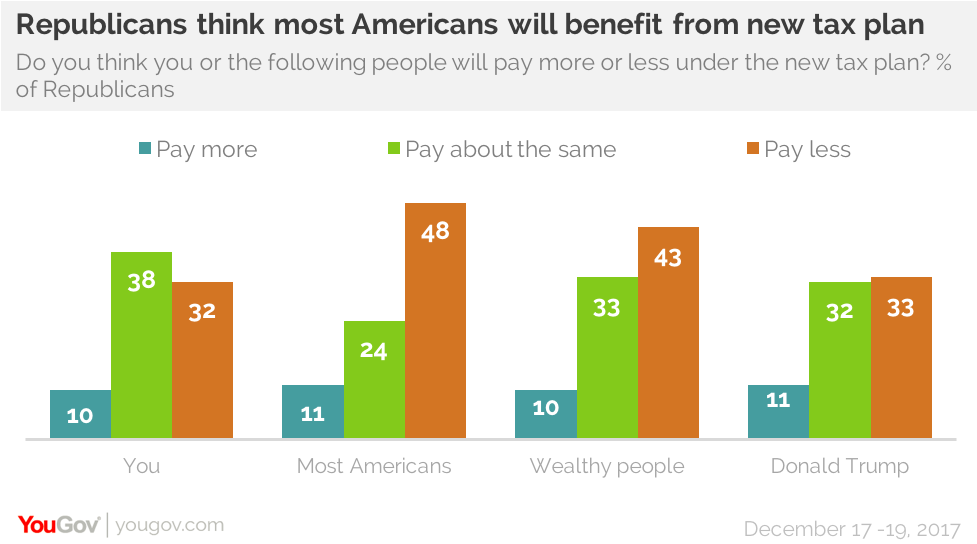
As for the specifics of the tax bill, it does contain a few popular (and occasionally very popular) measures – eliminating the tax penalty for not buying health insurance (supported 53% to 28%), increasing the child tax credit (64% support this), and lowering tax rates in all income brackets (supported 44% to 23%). But there is opposition to other key measures: Americans oppose eliminating the deduction for home equity loan interest by 43% to 25%, and oppose limiting deductions for state and local taxes to $10,000, though more narrowly. 30% support reducing the SALT limit; 35% oppose it.
Given that the tax bill’s impact on individuals is not yet obvious to the public, there is likely to be little immediate impact on opinion about the President or the GOP-controlled Congress. In this week’s poll, just 38% approve of the way Donald Trump is handling his job as President – and 37% approve of how he is handling taxes. In both cases, there has been little change in months.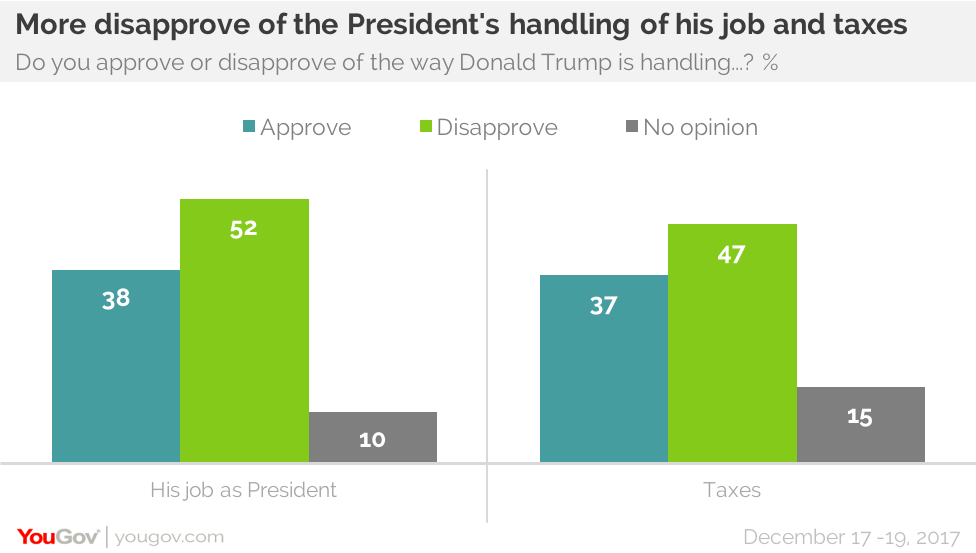
As for the Congress, only 9% think it has managed to do more than usual.
These assessments might not change until the public sees any tax cut in their own paychecks – or doesn’t.
For Congress, there is one financial obstacle ahead this year: avoiding a government shutdown, which will occur on Friday without new spending legislation. Most Americans are aware of this possibility, although only one in five are paying a lot of attention to it. Only 30% think a government shutdown will have an impact on them. But if there is a shutdown, Americans are ready to blame Republicans for it – either those in Congress or President Trump.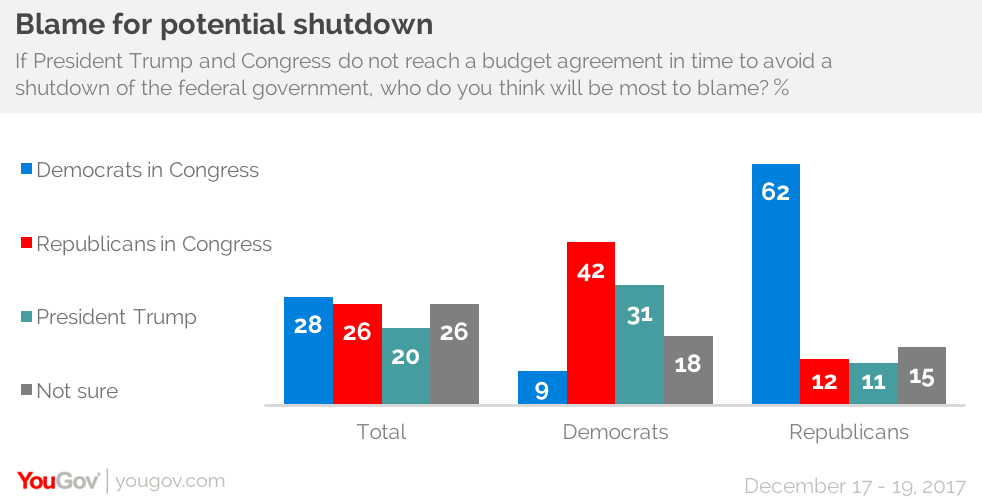
There isn’t a lot of support for some of the President’s demands for shutdown-avoiding legislation. Americans in the latest poll continue to oppose building a wall on the border with Mexico, something the President would like to see funded in the shutdown legislation, and support Deferred Action for Childhood Arrivals, something the President would prefer be kept out of the bill.
Given the choice, Americans of all partisan opinions want compromise within Congress. And even many Republicans (though not a majority) would like the President to be open to compromise, too.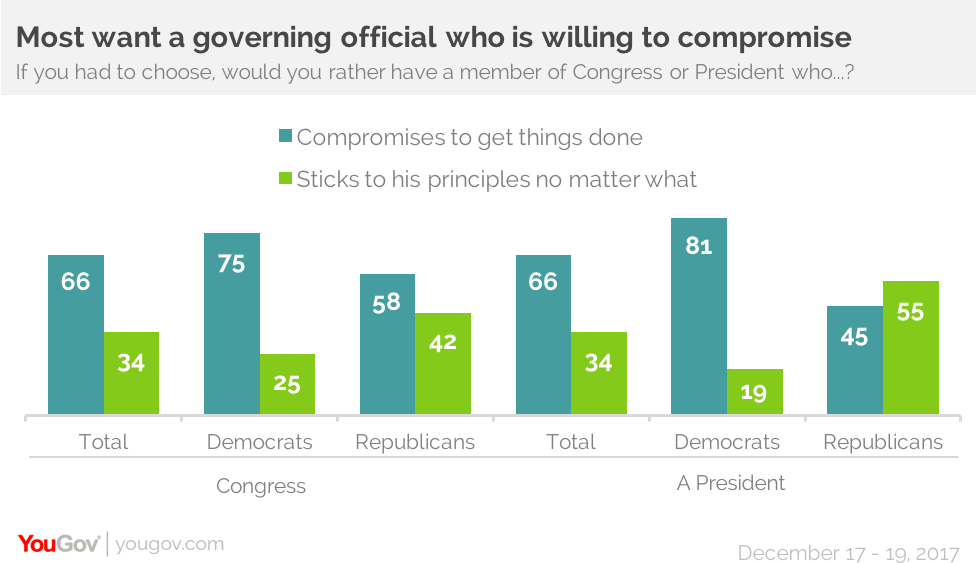
Read more topline and table results here
Image: Getty
